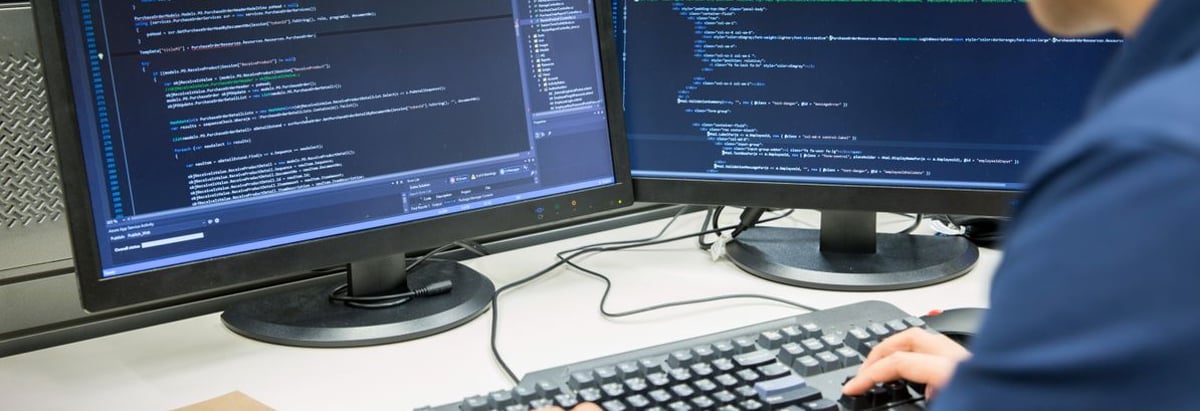Stock Analysis

Some say volatility, rather than debt, is the best way to think about risk as an investor, but Warren Buffett famously said that 'Volatility is far from synonymous with risk.' When we think about how risky a company is, we always like to look at its use of debt, since debt overload can lead to ruin. As with many other companies Kinjiro Co.,Ltd. (TSE:4013) makes use of debt. But should shareholders be worried about its use of debt?
When Is Debt Dangerous?
Debt and other liabilities become risky for a business when it cannot easily fulfill those obligations, either with free cash flow or by raising capital at an attractive price. Ultimately, if the company can't fulfill its legal obligations to repay debt, shareholders could walk away with nothing. While that is not too common, we often do see indebted companies permanently diluting shareholders because lenders force them to raise capital at a distressed price. Of course, debt can be an important tool in businesses, particularly capital heavy businesses. When we examine debt levels, we first consider both cash and debt levels, together.
See our latest analysis for KinjiroLtd
What Is KinjiroLtd's Net Debt?
You can click the graphic below for the historical numbers, but it shows that KinjiroLtd had JP¥2.42b of debt in March 2024, down from JP¥2.73b, one year before. However, its balance sheet shows it holds JP¥4.08b in cash, so it actually has JP¥1.67b net cash.
How Healthy Is KinjiroLtd's Balance Sheet?
According to the last reported balance sheet, KinjiroLtd had liabilities of JP¥1.01b due within 12 months, and liabilities of JP¥2.47b due beyond 12 months. Offsetting these obligations, it had cash of JP¥4.08b as well as receivables valued at JP¥689.0m due within 12 months. So it actually has JP¥1.30b more liquid assets than total liabilities.
This excess liquidity suggests that KinjiroLtd is taking a careful approach to debt. Because it has plenty of assets, it is unlikely to have trouble with its lenders. Succinctly put, KinjiroLtd boasts net cash, so it's fair to say it does not have a heavy debt load!
Also good is that KinjiroLtd grew its EBIT at 16% over the last year, further increasing its ability to manage debt. The balance sheet is clearly the area to focus on when you are analysing debt. But it is KinjiroLtd's earnings that will influence how the balance sheet holds up in the future. So if you're keen to discover more about its earnings, it might be worth checking out this graph of its long term earnings trend.
Finally, a company can only pay off debt with cold hard cash, not accounting profits. KinjiroLtd may have net cash on the balance sheet, but it is still interesting to look at how well the business converts its earnings before interest and tax (EBIT) to free cash flow, because that will influence both its need for, and its capacity to manage debt. During the last three years, KinjiroLtd burned a lot of cash. While investors are no doubt expecting a reversal of that situation in due course, it clearly does mean its use of debt is more risky.
Summing Up
While it is always sensible to investigate a company's debt, in this case KinjiroLtd has JP¥1.67b in net cash and a decent-looking balance sheet. And it impressed us with its EBIT growth of 16% over the last year. So we are not troubled with KinjiroLtd's debt use. When analysing debt levels, the balance sheet is the obvious place to start. But ultimately, every company can contain risks that exist outside of the balance sheet. For example - KinjiroLtd has 3 warning signs we think you should be aware of.
If, after all that, you're more interested in a fast growing company with a rock-solid balance sheet, then check out our list of net cash growth stocks without delay.
Valuation is complex, but we're here to simplify it.
Discover if KinjiroLtd might be undervalued or overvalued with our detailed analysis, featuring fair value estimates, potential risks, dividends, insider trades, and its financial condition.
Access Free AnalysisHave feedback on this article? Concerned about the content? Get in touch with us directly. Alternatively, email editorial-team (at) simplywallst.com.
This article by Simply Wall St is general in nature. We provide commentary based on historical data and analyst forecasts only using an unbiased methodology and our articles are not intended to be financial advice. It does not constitute a recommendation to buy or sell any stock, and does not take account of your objectives, or your financial situation. We aim to bring you long-term focused analysis driven by fundamental data. Note that our analysis may not factor in the latest price-sensitive company announcements or qualitative material. Simply Wall St has no position in any stocks mentioned.
Have feedback on this article? Concerned about the content? Get in touch with us directly. Alternatively, email editorial-team@simplywallst.com
About TSE:4013
KinjiroLtd
Provides human resource management (HRM) solution services.


